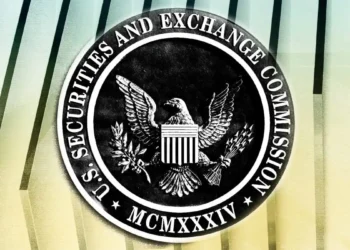Pierre Rochard, VP of Research at Riot Platforms, a major Bitcoin mining firm, has voiced strong criticisms of Ripple’s XRP Ledger (XRPL), suggesting that Ripple has the potential to undermine its decentralization.
Rochard argued that Ripple could easily fork the XRPL software, adjust escrow locks, or even inject trillions of XRP into circulation, destabilizing the network and centralizing control. His concerns center on the perceived risks to XRP’s supply and governance model, implying that Ripple’s influence could undermine the ledger’s integrity.
In response to these claims, Ripple’s Chief Technology Officer (CTO) David Schwartz took to social media to clarify the workings of XRPL. Schwartz defended the decentralized nature of XRPL, explaining that it uses a consensus algorithm rather than a proof-of-work system to reach agreements on transactions. This consensus process involves nodes collaborating to resolve issues like double-spending, with every participant having a say. Importantly, XRPL validators are not compensated, which, according to Schwartz, reduces the incentive for any one party to act dishonestly or attempt to control the system.
Schwartz further explained that while the XRPL’s consensus mechanism differs from Bitcoin’s proof of work, it still ensures that the system remains secure and efficient. He emphasized that validators cannot censor valid transactions, and the only threat to the system arises if multiple validators conspire to disrupt consensus. To prevent this, XRPL employs a system where bad validators are excluded quickly, leaving good ones to maintain the integrity of the network.
Ripple’s decentralized network, according to Schwartz, operates on a governance system driven by the rules enforced by the nodes, rather than by validators. While XRPL’s consensus model is not suitable for the initial distribution of tokens, it provides a faster, cheaper, and more censorship-resistant alternative to Bitcoin’s proof of work.
This is not Rochard’s first attack on Ripple. He previously accused the company of lobbying against a U.S. Strategic Bitcoin Reserve initiative. Rochard claimed Ripple was spending millions to block the proposal while promoting XRP and opposing Bitcoin mining under the Biden administration. Ripple CEO Brad Garlinghouse denied these allegations, asserting that Ripple’s efforts are, in fact, increasing the likelihood of a crypto strategic reserve, including Bitcoin, becoming a reality.
If you want to read more news articles like this, visit DeFi Planet and follow us on Twitter, LinkedIn, Facebook, Instagram, and CoinMarketCap Community.
“Take control of your crypto portfolio with MARKETS PRO, DeFi Planet’s suite of analytics tools.”




















